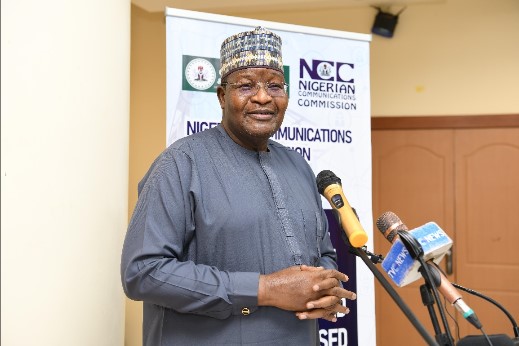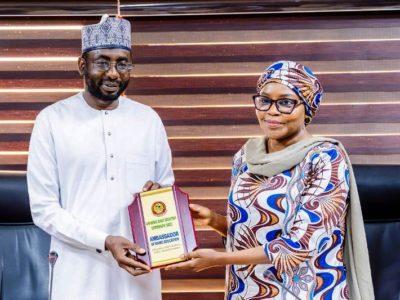The Nigerian Communications Commission (NCC) said in spite of challenges, it was already achieving worthy tractions with its Strategic Vision Implementation Plan (SVP 2), 2021–2025, also dubbed ‘The 5-Point Agenda,’ which was unveiled September 7, 2021.
RELATED: Nigerian telecom regulator says investment in sector now exceeds $75.6bn
The SVP 2 is the telecom regulator’s blueprint to managing the sector for five years beginning 2021.
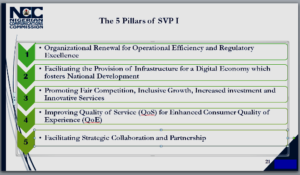
The Executive Vice Chairman/CEO of the NCC, Prof. Umar Garba Danbatta, during a media engagement this week in Lagos enumerated the 5-Point Agenda to include organizational renewal for operational efficiency and regulatory excellence; facilitating the provision of infrastructure for a digital economy which fosters national development; promoting fair competition, inclusive growth, increased investment and innovative services; improving quality of service (QoS) for enhanced consumer quality of experience (QoE); and facilitating strategic collaboration and partnership.
“Like its predecessors, a number of factors and policy statements were considered in developing the 5-Point Agenda” of the SVP 2, said Danbatta stressing some of the hurdles faced by the commission to drive its agenda.
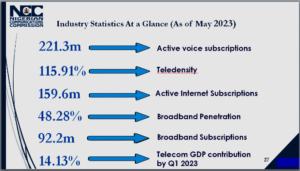
Sector remains “strong and steady”
But the sector has remained “strong and steady” despite headwinds, Danbatta said even as he listed his ‘scorecards and landmark developments’ that have shaped the trajectory of growth in the telecoms sector since he became the chief telecom regulator in August 2015.
The investment profile in the sector comprising of foreign direct investment (FDI) and local investment is now in excess of $75.6bn to underscore a pulsating industry despite a mix of challenges including galloping inflation and a shrinking national income in the last few years.
Investment in the sector has been on the increase since 2018 from $68 billion, $70.5 billion (2019), $72 billion (2020), $75.4 billion (2021) to $75.6 billion (2022) to underscore its growing attraction for investors and the robust regulatory leadership provided by the NCC.
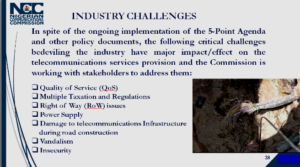
Telecom to GDP on the rise despite hiccups
Similarly, the telecom sector accounts for 14.13% of the country’s Gross Domestic Product (GDP) as at Q1, 2023; a steady rise from about 8.5% of Q3, 2015, according to the National Bureau of Statistics (NBS).
There are more. Active voice subscriptions, teledensity, Internet subscriptions, broadband subscriptions and penetration have all increased considerably in alignment with the objectives of the SVP 2.
The sector is bedevilled with old and emerging challenges, thhe regulator lamented. They include quality of service (QoS); multiple taxation and regulations; Right of Way (RoW) issues; power supply; damage to telecommunications infrastructure during road construction; vandalism; and insecurity
However, Danbatta assured that the commission will remain focussed on nurturing right environment for all stakeholders.
“The telecom environment requires a regulatory climate that is predictable, innovative, dynamic, and visionary, to be able to meet, and even surpass the demands of the current economic, social, and environmental demands of all stakeholders, especially with regards to availability, accessibility and affordability,” Danbatta told the media at the meeting.


